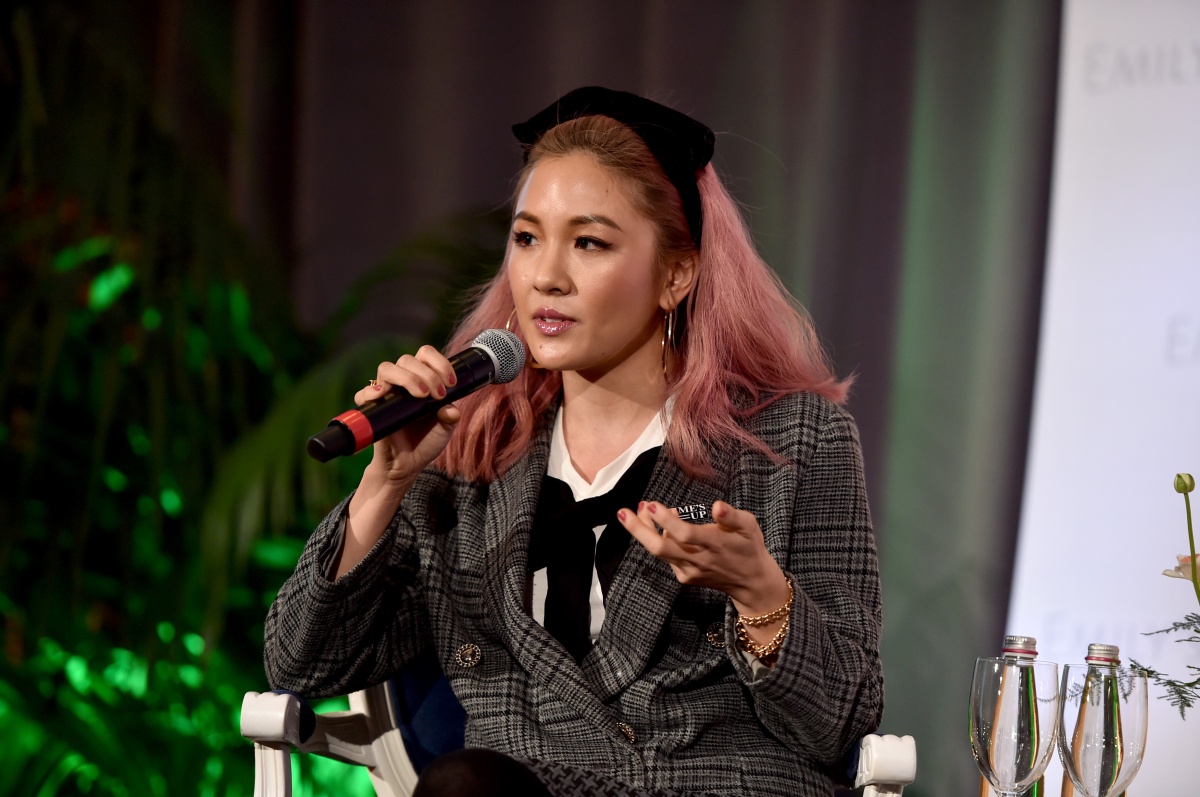Why the Crazy Rich Asians Crew Passed on Netflix’s Massive Payday
They wanted 'the biggest stage with the biggest stakes'

Crazy Rich Asians is going to be the first big Asian American studio film in 25 years and with that comes extremely high stakes over what this movie could mean in Hollywood for future Asian American films. Which is a ridiculous amount of pressure to put on a fun romantic comedy, but that’s what happens when marginalized groups make movies—every movie has to be excellent, even if it should be allowed to be fluff.
In The Hollywood Reporter, it was revealed that the people behind the film first had to decide which would be the better place to distribute the film: Warner Bros. or Netflix.
Behind one door: Warner Bros., which had outbid other traditional studios with a distribution offer for Crazy Rich Asians a week earlier. Behind the other: Netflix, the great disrupter, which had come in hot the following Monday, dangling complete artistic freedom, a greenlighted trilogy and huge, seven-figure-minimum paydays for each stakeholder, upfront. Now Warners had come back with not so much a counteroffer as an ultimatum, giving the filmmakers just 15 minutes to pick an option.
We know they picked Warner Bros. because Crazy Rich Asians is coming out in theaters later this month, but the decision to choose a major film studio versus Netflix and a bigger payday, shows the mindset that was going on with Kevin Kwan, author of the book Crazy Rich Asians, and Jon M. Chu, the movie’s director: they knew the importance of having a major film studio back this film and getting to see an all-Asian cast on the big screen. Warner Bros.’s chairman and CEO is Kevin Tsujihara, who happens to be the first and only studio head of Asian descent.
For everyone, this is a necessary gamble.
Kwan says in the article: “I could sense every lawyer on the call shaking their heads: ‘Ugh, these stupid idealists.’ Here, we have a chance for this gigantic payday instantaneously. But Jon and I both felt this sense of purpose. We needed this to be an old-fashioned cinematic experience, not for fans to sit in front of a TV and just press a button.”
Chu added on: “We were gifted this position to make a decision no one else can make, which is turning down the big payday for rolling the dice [on the box office] — but being invited to the big party, which is people paying money to go see us.” Right now the film’s early tracking indicated that it had the potential to make around $20 million during its five-day opening weekend, which is more than the usual rom-com.
Producer Nina Jacobson points to the success of Get Out and Black Panther to demonstate the importance of bringing these stories to the main stage. “You can look at Get Out, you can look at Black Panther — it changes the whole economics of the business when movies like that succeed. It meant something to us to become a ‘comp’ for somebody else.”
Even with the success of the books the movie will be based on, Kwan was still told by many producers, before landing with Color Force, that he should make his main character, Rachel, white. “It’s a pity you don’t have a white character,” he was told.
For director Jon M. Chu, this was an opportunity to use his power to add positive representation. “Something in me shifted during those Twitter-sphere protests of Whitewashed Out and Starring John Cho […] I was like, ‘I have this power to do something, but what is the story?'”
The story is a fun Meet The Parents-style comedy filled with a fucking fantastic cast: Constance Wu, Henry Golding, Gemma Chan, Lisa Lu, Awkwafina, Ken Jeong and Michelle Yeoh.
“I really believe it will work on a broad basis,” says production president Courtenay Valenti. “It’s a story with rich themes about identity and culture and where do you belong, which are so universal, especially in terms of the conversation that’s resonant today worldwide.”
Crazy Rich Asians comes out on August 15, 2018, and if you are interested in learning more about Asian and Asian American representation, this podcast from the New York Times called “Still Processing” has an excellent two-parter on the subject with a wide variety of Asian/Asian American people talking about their experiences.
(via THR, image: Alberto E. Rodriguez/Getty Images)
Want more stories like this? Become a subscriber and support the site!
—The Mary Sue has a strict comment policy that forbids, but is not limited to, personal insults toward anyone, hate speech, and trolling.—
Have a tip we should know? tips@themarysue.com